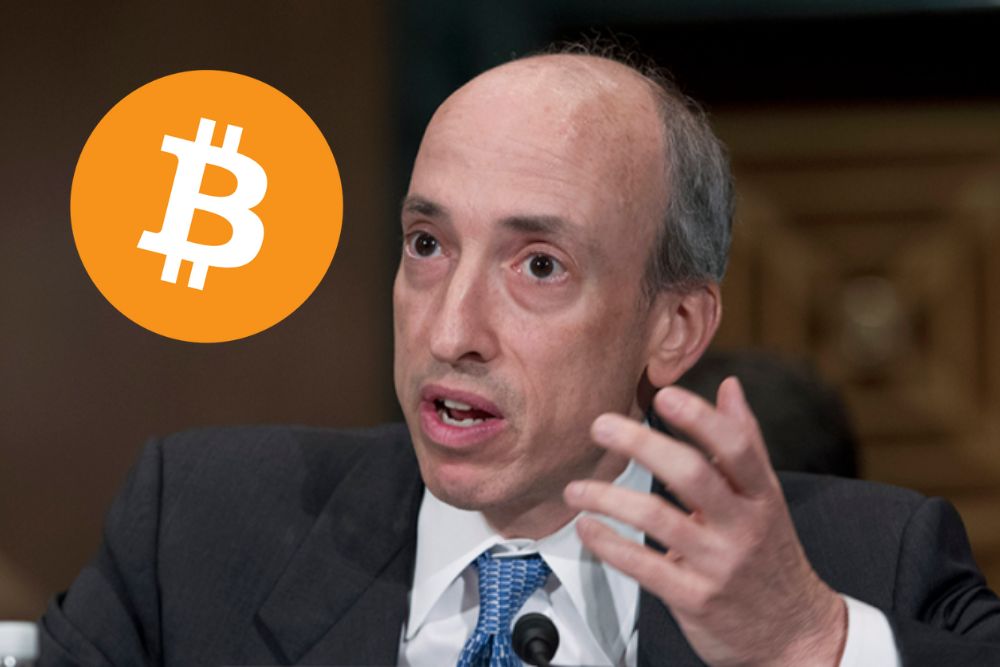The head of the U.S. Securities and Exchange Commission (SEC), Gary Gensler, has said unequivocally that he is not a Bitcoin owner. This public statement, given during a hearing in April 2023, has caused a lot of debate within cryptocurrency and financial sectors. Gensler's views on digital assets, notably Bitcoin, are significant given his influence on cryptocurrency regulation. The ramifications of Gensler's claim for the larger bitcoin market are examined in this article.

Encouraging the SEC to Remain Neutral on Crypto Regulation
Gary Gensler's public statement that he does not hold Bitcoin shows the SEC's neutrality in cryptocurrency regulation. Gensler contributes to the idea that the SEC's regulatory judgments are impartial by not investing in digital assets. This might improve the SEC's actions and rules' legitimacy, particularly as it negotiates the intricate and quickly changing cryptocurrency market.
Effect on the View of Bitcoin as a Commodity
Gensler has argued that Bitcoin may be a commodity rather than a security, which might affect regulation. His decision not to purchase Bitcoin may be a way to avoid any conflicts of interest while remaining impartial on its categorization. This strategy may change how regulators and policymakers see Bitcoin, perhaps improving its regulatory status.
Impact on the Confidence of Institutional Investors
The public declaration by Gary Gensler that he does not hold Bitcoin may have a complex effect on institutional investors. On the one hand, it may give them confidence that the SEC would create a regulatory structure free from prejudice. SEC Chair's lack of personal involvement in Bitcoin may signify a cautious attitude to the asset, causing institutional investors to be more careful. The future entrance of institutional money into the cryptocurrency market may be influenced by these two factors.
The SEC's Ethical Standards are Reaffirmed
In order to avoid conflicts of interest, SEC officials are normally prohibited from possessing digital assets under its stringent ethical guidelines. In accordance with these guidelines, Gensler's statement reaffirms the SEC's commitment to the highest ethical standards. This public position might boost public confidence in the SEC's cryptocurrency market monitoring, assuring fair and transparent enforcement without personal financial bias.
Reaction and Speculation in the Market
The remarks and actions of prominent regulatory personalities often cause the larger bitcoin market to respond. Gary Gensler's public remark about not holding Bitcoin has spurred predictions regarding SEC regulation. Some market players may see his lack of personal involvement as an indication of regulatory issues, increasing market volatility. Some, on the other hand, could see it as a show of regulatory independence, which might calm market sentiment.
Dispelling Myths and False Information
Gensler's unequivocal admission that he does not possess bitcoin assets dispels market misperception. Clarity from a regulatory leader like Gensler is essential to preserving openness and confidence in an industry full of rumors. This announcement might help debunk speculations like Gary Gensler owns Bitcoin, making the market more informed and steadier.
Conclusion
The fact that Gary Gensler does not hold Bitcoin shows his dedication to ethical and unbiased cryptocurrency regulation. The SEC's impartiality is essential to the public and institutional investors, but it also affects how the market views Bitcoin and other digital assets. Gensler's position will probably be quite important in determining how regulations and market dynamics for cryptocurrencies develop in the future.






